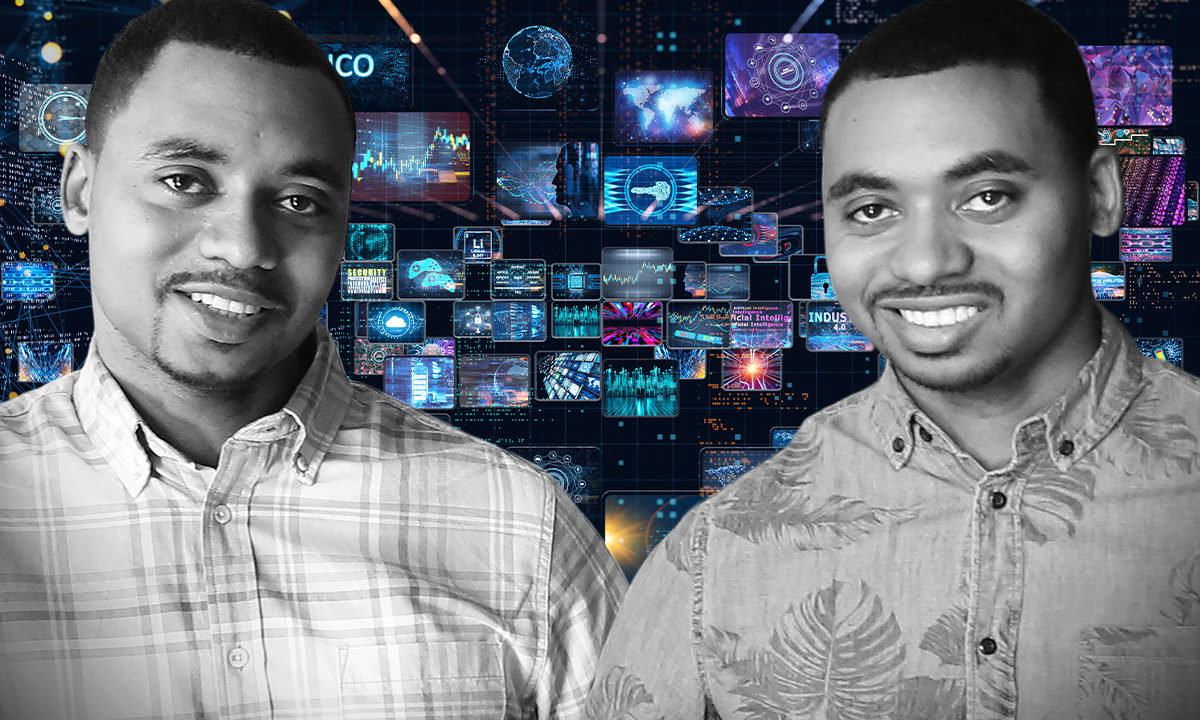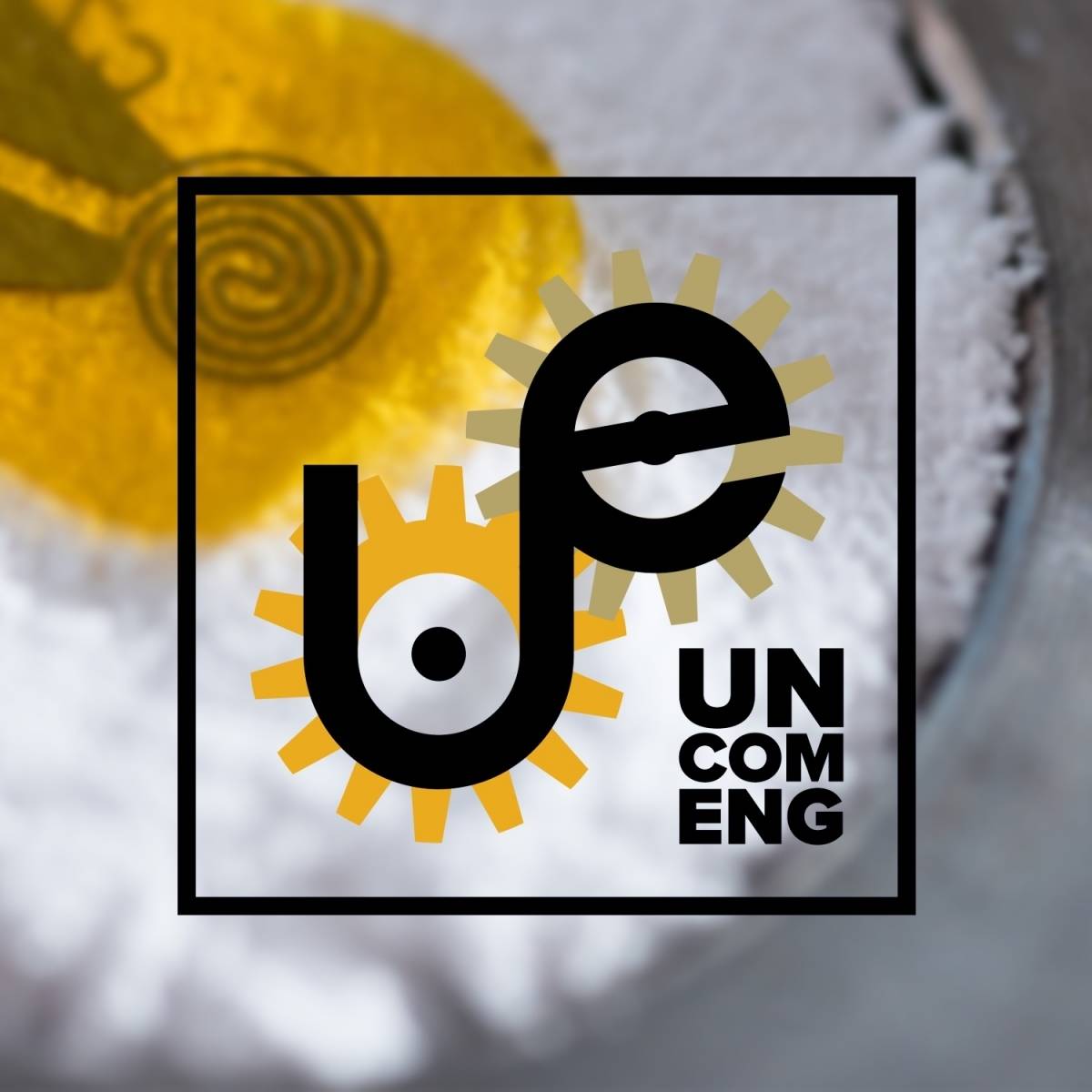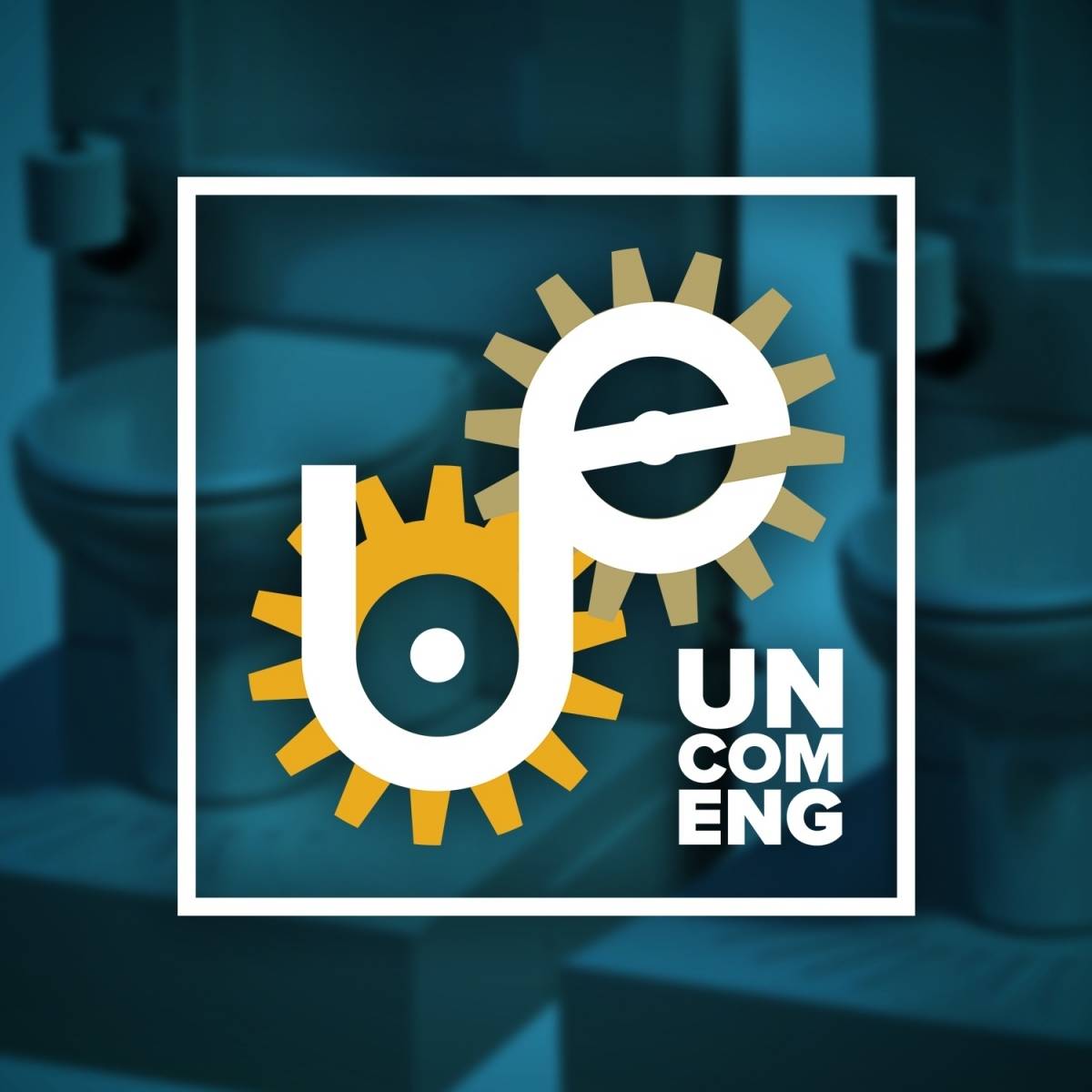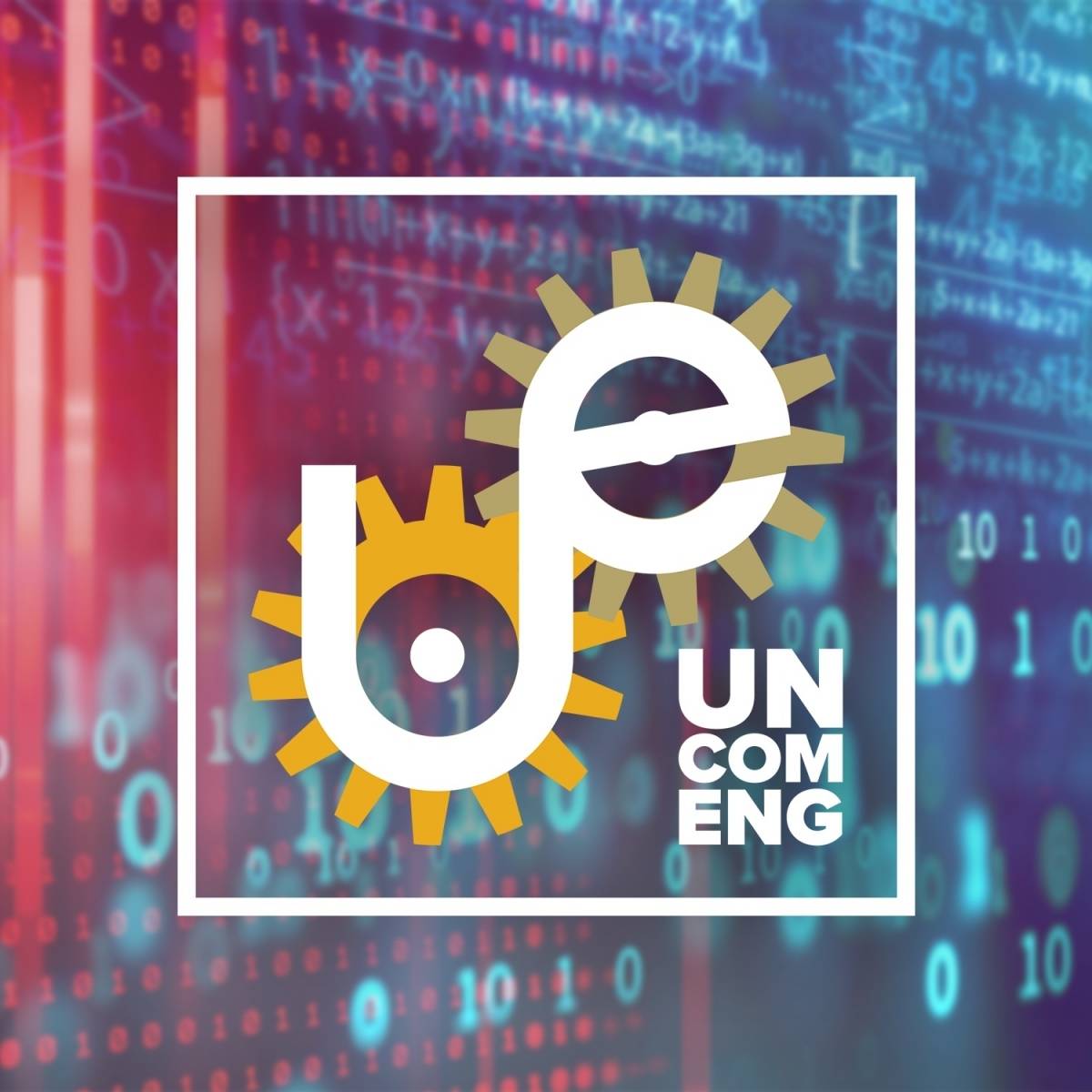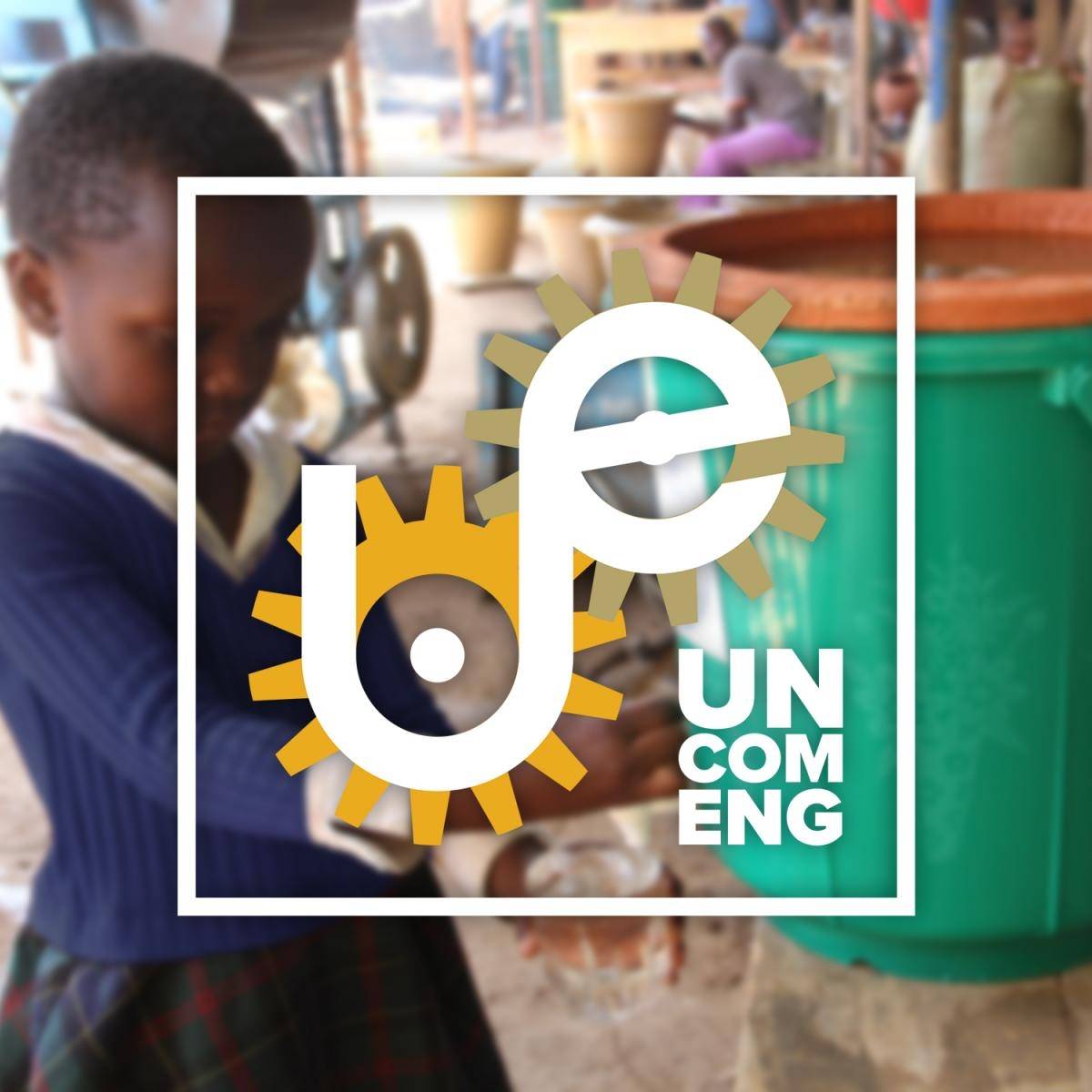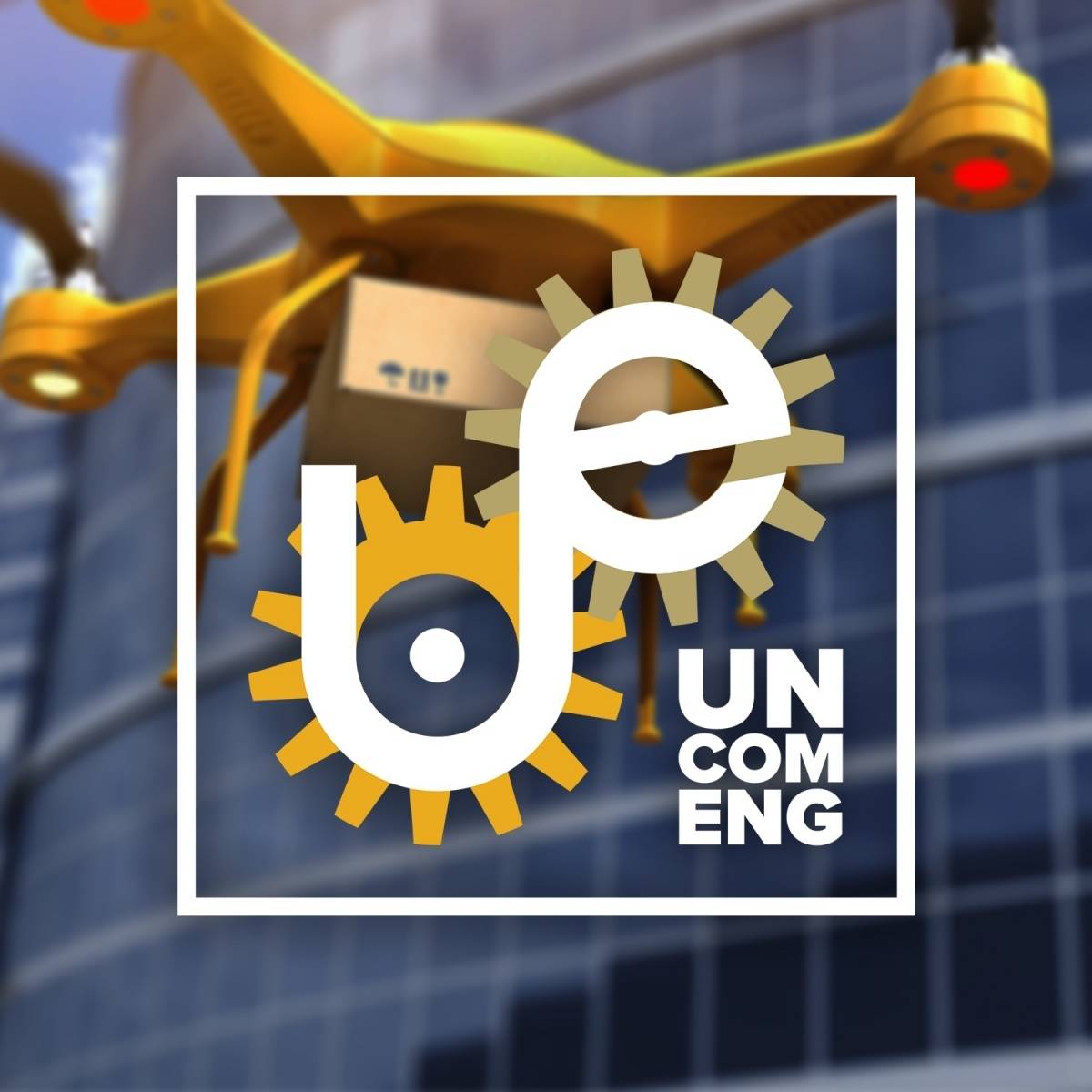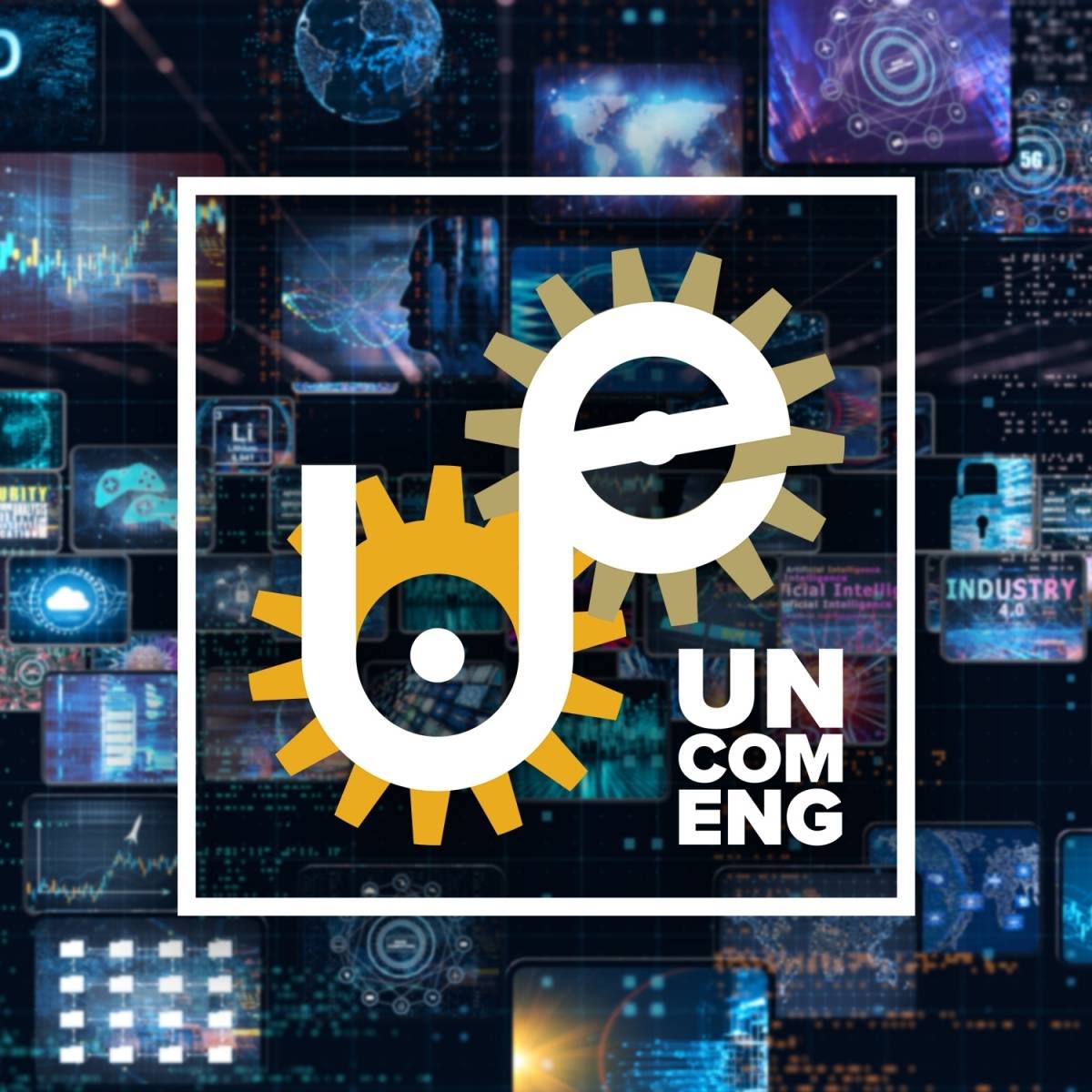
Steve W. McLaughlin

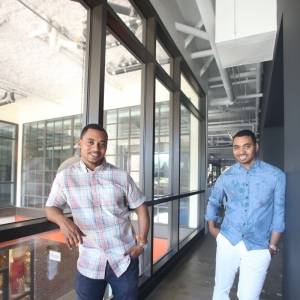
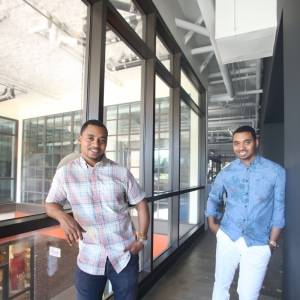
Audio
Audio & Captions
Transcript
>> Innovation and entrepreneurship are among core pillars of Georgia Tech's College of Engineering. And for many engineers, that means becoming an entrepreneur after earning their degree.
[marching band music]
>> I'm Steve McLaughlin, dean of the Georgia Tech College of Engineering, and this is The Uncommon Engineer.
[marching band music]
[steam whistle]
Steve McLaughlin: Our guests today are brothers, often known as the Tech Twins, Travis and Troy Nunnally. They both earned graduate degrees from the College of Engineering. They became serial entrepreneurs and co-founded a business venture called Brain Rain Solutions. They're here today to talk about their experience as both engineers and entrepreneurs. Welcome to the program, Travis and Troy.
>> Glad to be here. Thank you for having us.
>> It's a pleasure.
Steve: I can't wait to talk about a whole bunch of different things, but we’re recording the podcast right in the midst of the coronavirus pandemic. So many things have changed. And if it's OK, that's really where I'd like to start. If you both could talk a little bit about your startup, Brain Rain Solutions, and I'm really curious about how it's affected you, your business, how you might have pivoted, and also what your clients are seeing.
>> OK, so Brain Rain Solutions is a software development and product launch firm. So we focus on bringing products to life, and that’s typically in the realm of artificial intelligence, augmented reality, and usually complex technologies. So when COVID hit, we saw a very interesting dynamic with our business. So with COVID, usually the businesses that were impacted the most were your gathering institutions, that's what we call them. Those are companies like restaurants. Those are spaces, clubs, places where people gather in groups of people. For us, all of those companies started moving to an online or digital presence, meaning that they started thinking through a strategy in a way to reach their customers in a very unique for digital platforms. For us, that’s a goldmine because we specialize in digital strategy and product development from a mobile apps and web app standpoint. So we actually saw up ticking business, which is very not heard of in the space of the COVID. Most of our companies started coming to us asking for— most of our clients started coming to us asking for communication tools, live video streaming, pitch message campaigns, things that they can communicate better with their constituents and their customers so that they can be, you know, increase their business and stay alive and survive through the COVID-19 pandemic. So we saw a very interesting dynamic. We were excited because of it. It actually opening up opportunities. I think it was Winston Churchill that said in every crisis is a great opportunity. And we saw that great opportunity, realized it, and took advantage of it. And we're hoping that the people who are struggling and may need assistance, that they realize that, hey, this is a way that we can do business differently and realize this is more of an opportunity rather than a challenge.
>> Yeah, COVID-19, is a new normal, as they said. And when you have a new normal, you have to do things differently. And what we try to do is try to get people to say, hey, this is opportunity for you to be more aligned, more on social media, more doing live content so that your business can scale globally. Because when you— locally, if you’re a local business, then is not necessarily local, but when you're online, it’s a global presence. So this is our opportunity for us. Sometimes in some cases, it’s not an opportunity because of the unemployment, but in the terms of digital and technology, it’s opportunity for a lot of businesses.
Steve: You touched on a bunch of different type of companies. Was there typical company that came? And maybe you could give an example, say, in the food service or restaurant kind of business, someone who you never worked for. I'm really curious about what that looks like. They come to us. They came to you probably saying, “Oh, my word! Everything changed. Help me!” And I'm really curious, like, say, about how that all— how that unfolds and what their needs were and then how your company meets those needs.
>> Yes. So for us, we focus— our demographic that we focus on are actually companies that are the toolmakers. So they usually have some software or [no audio] presence. So, for example, we have a equity in a company that does dermatology tools, and it basically assesses the skin. We use image processing to look at lesions on the skin whether it's pimples or whether it’s freckles, and we recommend products to give you a better quality skin experience. So dermatologists’ offices is a brick and mortar business. They get patients to come in. They, you know, assess that patient. They're sitting in a waiting room where you can pass COIVD-19. We decided to take a online presence approach and build a tool that allowed them to do online assessments. So what that looks like is a patient will now use their QR code or a link, click, go to a page that they ask a series of questions as well as take images of their face, and then a sales consultant, a skincare consultant, will call that patient and do a skincare analysis as long as that supports our recommendations from the algorithm. So they essentially call the patient and say, “Hey, I noticed that you have oily skin according to the algorithm. We want to recommend this moisturizer that is better for oily skin.” And that allowed the customers— in this case one at our dermatologist’s office actually saw not a decrease in sales, but the sales actually maintained level. It didn’t increase, but in a pandemic staying level is crucial. So they actually made, you know, 3,000, 4,000, 5,000 days, you know, $5,000-days with our sales tool and our tool for connecting [inaudible].
Steve: And so that's a customer that you had no interaction with before? That's a brand new customer for you?
>> Yes. We on-boarded that customer during the pandemic, yes. So that's a brand new customer that had no interaction. I mean they had a little bit of interaction, but it wasn't, you know, what I mean “a little bit,” that means they were on the fence with using us. And there was enough sales funnel, we was trying to close that deal, but the pandemic gave us the opportunity to close it faster because there became a real need to have these type of tools.
Steve: And that sounds like that's a real success. And as you pointed out that there are so many folks that have lost their jobs and so many difficult stories to tell, I'm curious if there's a not-so-rosy story to tell about customers that you've seen and how COVID-19 has affected them and even despite your best efforts, can't help because of the situation.
>> Yeah, so, let’s see. So there is a customer— there's customers that did hiring freezes. So in opportunity, there's two choices. I mean, in a challenge like this like a pandemic or a recession, there's two choices you can make as a company. You can retract and you can start firing, laying off people, cut the bottom line, closing up doors and start being a quarter of your resources, so start collecting cash and make sure that your company doesn't die in this pandemic. But then there’s a group of companies that start to work harder; they start to make more calls and expand during a pandemic. They know that there's a series of companies going to not use their marketing budget, for example, so that gives me an opportunity to go in and take that customer.
So we've seen companies that retracted. And the way that looks like for us is that they’ll do a hiring freeze. We may you know, they’ll say— we're on as a contract; we're helping to build their software— but are saying, “Hey, we want to freeze this project.” And in those cases, we don't know if that's the best decision where freezing technology when technology is your solution to overcoming the pandemic. So those customers, you know, we encourage to think as an expansion mindset even in these tough and challenging times.
>> Yeah. In that company, they cut the operations. So the operations team was cut by 50 percent. They was more— in those operations was like cold calling, support calls, and support teams. In this company specifically was a insurance— they’re an insurance company. So they had to cut their support costs down. But the technology team stayed level. They didn’t, like he said, they just froze hiring. They didn't lay anybody off, but they just stopped the hiring moving forward. So in that case, it was a traumatic experience because I have to ask the guy, the client, “Hey, what's gonna happen to us? What's going to happen to the people that we put on to your team? Are they staying? Because we see that you're cutting your operations are already leaving.” And that was a tough conversation.
The client, luckily, he said, “Hey, you OK. Your team is OK.”
But I can imagine when it’s not so good for other people who have clients, other companies, other entrepreneurs that need revenue and they're being cut from projects.
Steve: And I know, Troy, I'm an electrical engineer, a Ph.D. in EE, and so I'm really curious about your perspective on technology from the standpoint of, you know, what have you seen just even in the last two or three months, either the tools of the trade or where you see tech. As technology might have replaced those folks and those jobs might not come back, what do you see in terms of trends around technology? What are the things that you're using? What are the new pieces that are being developed that, say, maybe are benefiting from COVID?
>> So the technologies that we are seeing is artificial intelligence. So there's been a big boom, a big trend on the growth of artificial intelligence in essentially across the industry, and that is going to help reduce down costs because the rule of thumb behind artificial intelligence is if you can do it for one second and you can think about the task for one second, it probably can be automated. So, for example, if I were to make a phone call, you know, and it only takes me five seconds to dial the number, that can be automated. If I can, you know, type a particular sentence to send an email out to another person, that could be automated. So those are the things that AI is doing is to make people’s lives more productive. But it is at a cost of people who may not be so technical, who are doing those tasks mainly, they may be displaced. So it's up to us as engineers and entrepreneurs and academia to be able to find solutions to either help offset those displaced jobs— either retool an employee or find other ways to make sure that everybody is, you know, making a good income.
And another technology that's really big is the Internet of things. So everybody is talking about home automation, automating different things in your car and in your office, and that is a really big and booming thing. Especially in electrical engineering field, it’s really big and booming because everything can be put— you can hook up an electronic microprocessor up to pretty much a coffee mug, anything, and it could be automated. So I think that is up and going in trends. Those are two big ones that I see.
Steve: So I'd be really curious to hear more just about, you know, how your company developed and how many employees you have now. And I know that in one of the things that I've seen is that one of your aspirations, either personally or as part of your company, is to touch 10,000 companies or to assist them in their development. And so maybe that's a philosophy or corporate culture. I'm really curious to learn more about your company and some of those other things.
>> OK, yes. So we started in 2009. The company actually originated from a project at Georgia Tech. We were part of the organization at Georgia Tech that was launching and hosting a symposium, which is essentially all of Georgia Tech graduate students showcase their work. At that point, they needed a way to house these abstracts and show these abstracts to sponsors and visitors like, for example, Microsoft is coming to the symposium. They want to see basically a portfolio of this abstracts at the symposium. So at that point, we saw a need which is always what our company is focused on— finding a need first— and then we build the solution. We never build solutions unless the need is expressly expressed and is backed up by customers willing to pay. So at that point, we built it out, built out the software to house these symposiums. So we moved— we realized that there's other companies that have needs and these solutions, and as we— when people saw, especially at this symposium, our work, they asked a question, “Who built it?” So naturally, they sent it to just us, Troy and Travis, and we need to grow this into a real business. So at that point, we've been launching and building software over the last 10 years. We helped directly build over 250 software projects. We've helped and consulted with I think right now we're at maybe 5,000 companies that we've done consulting with, and we have a goal to reach 10,000 companies where we at least consult and help them get from one point to another point. So the way we measure that is we look at— we first determine objectives for that company and whether it’s to grow your revenue to a million dollars, $10 million, $20 million. And then we say, “If you reach that, just contact us, send us a testimonial, and let us know.”
So the way we scale that is through tools and software. So we built training as well as tools in order to reach as many people as possible. So we're quickly approaching the 10,000 mark for our company.
>> So currently we have around 13 employees, yeah, 13 employees, some of them are here locally, and then we have a couple that’s overseas— that’s who oversees development. And to get the name of the company is called Brain Rain Solutions— so it’s Brain Rain Solutions, and it’s primarily built upon two principles that you have the brainiac and you have the rain maker. The brainiac is the person that is doing the execution behind the product, building a product, making sure the product is high quality. But then you also have this, rainy, a rainmaker that brings the customer to the product. Because if the product is perfect, but there's nobody to see it, is it really a product?
[chuckles]
You get the point? So the rainmaker really brings in the revenue— that's the sales person; that’s the marketing team. And then a brainiac is the person who's executing— that’s the technologies; that’s the CTO; that's the programmer. And since we’re identical twin brothers, it worked really well because I was really technical savvy and I could be able to think of it and I can build it and really have a high technical prowess. And then you have my brother who you can see he's good looking and he's well-spoken. He can go into a sales meeting and pitch the idea. So that's that was the idea behind Brain Rain Solutions. It just happened so that we're two different people that have a complimented skill set to work together.
Steve: You know, one of the things that the College of Engineering we think that we do really well, and it's a huge priority for us is to create the most diverse and inclusive environment that we could possibly imagine. And I'm really curious about your experience in that regard, you know, how you found Georgia Tech, and even after Georgia Tech, how you found the Atlanta startup community for minority engineers, you know, in terms of investment, in terms of the whole— the whole picture. I know a lot of our listeners I think will be really curious to get insight on your experience in that regard.
>> So the Georgia Tech has a strong minority culture that's at Georgia Tech. So we’re— we were blessed to be a part of the Black Graduate Student Association. AASU has a very strong presence at Georgia Tech. And what I mean by strong presence is that what we don't have in numbers, we have in community. So we may not be a majority from a, you know, ethnic background, culture background, but we have a very close-knit community that everybody is willing to help each other out. So our black— the Black Graduate Student Association is some of our best friends even to today. We meet regularly. We have a GroupMe chat from people that we met back 10 years ago at Georgia Tech, and they're our friends. Troy’s— three of Troy’s groom’s people were part of the Georgia Tech community when he got married. So that's a testament to how close-knit the minority presence is at Georgia Tech.
For us, we took that minority presence and then we brought it to tech and entrepreneurship after Georgia Tech in the startup community. So what we're doing from a minority standpoint in the startup community is we're trying— we're trying to build that same closeness that we had at Georgia Tech in that community with the closeness of the community to the greater black Atlanta tech community, that closeness, with that community. So we've we started a couple of initiatives. The first one is, of course, the Ten Thousand Founders initiative, where we are focused on helping 10,000 founders with an emphasis— you don't have to be a minority, but we do, you know, do target some minority business to come into— come into our marketing system. And then also we started a space here in Atlanta in Castleberry Hill. It's about, right now, 4,000 square feet. We've partnered up with— we're co-founders with other people.
>> Four of whom are Georgia Tech alumni.
>> Four of them are Georgia Tech alumni. Two of them have Ph.D.s. So we took that closeness and we started to help out our minority, you know, the minority community. So we started the space. And the whole purpose of space is to build, showcase the quality of the work coming out of the minority tech ecosystem.
So that's some of the things that we've started. I mean, if you're interested, then just reach out to us— shameless plug—
[laughter]
and then we can connect you with the right people, especially if you're a minority because you need that backing and you need that, you know, that backbone because it's different. People tend to— and I know I’m on a soapbox here— but there's a challenge that is not understood from a minority individual. People tend to invest— and this is just human nature— people tend to invest in people that look like them. And sometimes you may have an opportunity, but don't understand why you didn't get that investment, why didn’t you get that business partner, and it's because you come from— sometimes, and it’s not all the time— but sometimes you come from a different cultural background. So that bias we have to overset— offset— with just getting support for those individuals that are not as privileged. They don't have inheritance. They come from low income. They don't have the— we call it the rich uncle— who can invest $25,000 into their startup idea or in their new company. So we want to be able to be that rich uncle for those people that— I'm not saying I'm rich, but I'm just saying that we want to be a support system for those people so that we can help those individuals.
>> Yeah, I think the space is going to be really big because right now it's COVID, you know, in the COVID era, so it's not many people going into the space. But one of the things we did do was create a podcast room that allows people to go digital with their contents. We also have a green screen room that allows them to do videos and go into social media. The space is really about innovation in Atlanta community. So walk into a— imagine going into a space. You see a AR/VR lab off to the right. You see a motion capture lab down the center. You see podcast. You see green screen rooms. You see server racks for artificial intelligence. You see an electronic lab for IoT development. And we're trying to centralize to take innovation, especially in communities that are less privileged to be able to have the resources like Georgia Tech, like resources at their disposal. And that's just one of the things that we're trying to do in the Atlanta community right now.
>> And Georgia Tech, really, to be honest, Georgia Tech, we would not know what resources are available if we had not experienced going to Georgia Tech. I really wouldn’t know what equipment to buy and what is top-level type resources.
Steve: So you talked about your experience, you know, in terms of in the minority community, how it is you're supporting, how the community has really come together. I think, you know, the statistics show that still vast majority of companies that are started are not started by minorities. There are so many other challenges around that. I'm really curious about your perspective on how we can change both the narrative and the reality tied to that. Is it the investment community? Is it the education community? Is it the city? Is it the culture? What are the things that we can really work on to change some of those?
>> Yeah, so that's a really good question. And the number one thing is that you have to put yourself in the place of a minority person, all right. When we are starting our companies, we’re oftentimes, feel like we're trapped. So we were going to a job, and it's 9 to 5. We go there. We may or may not like it. Most of us are kind of like we don't love what we do, but we don't have a support system a lot of time for minorities to, where statistically— and this is not me just saying this, you know, out of not actual evidence— but we're statistically don't have the wealth, especially a black minority as other ethnic groups, so we feel like we're trapped. We're oftentimes have high debt, and we feel like if we jump off and do our own thing, then we're going to crash and burn. So for us, knowing that those people who have this pit— this pain in their stomach that they have to do something different with their lives and they don't want to be at a dead end job for the rest of their lives, they have to have something to motivate them to get out of the trap. So what we do is we started off putting around, putting content in place where we can help people motivate to take action. And sometimes it's really simple for us. We're engineers, but we read a book that changed our way of thinking that decided— that we decided to take a entrepreneurship route back in— I think that was 12th grade when we read Rich Dad Poor Dad. So those type of information to educate our group, get them out of the trap so they know that they can do it, and then put support around them by utilizing, you know, our space, you know, putting together investment networks to help support those individuals to say, “Hey, you're not doing this by yourself. You may feel like you're trapped, but we're right here with rope to pull you out, to help you to pull you out.”
So for us, we feel like it first starts off with education and tools. My debt, like the $100,000 I have in debt is going to cause me not to fulfill my dreams in life.
>> I think with the with the minority startup community, first of all, five years ago— or when we first started 10 years, over 10 years ago, it was very sparse, so it was hard to find resources in the minority startup community here in Atlanta. But I would say it has grown tremendously since. Right now, the Atlanta startup community is starting to be coined the “Atlanta black tech mecca,” because right now here in Atlanta, we have found a way to really unite and create an ecosystem around minority-owned businesses. So you have these different groups that specialize in different things. Like Travis and us, we specialize in tech education, making sure that you have the knowledge to be able to grow your company and, particularly, get funding. Then you have another group who specialize around funding, which is Collab Capital, which is Jewel Burks. And so her company, I actually worked with her in the past with Partpic and sold her company to Amazon. You have Barry who sold his company. And then you also have these people who also start to create this ecosystem and create Slack and GroupMe groups. You have technologies of color. And so you have these different things of ecosystems that's coming together finally in the Atlanta area. And we think and we are on the same page even when— I talk to every single one them, y'all know that hey, right now we're positioned and primed to really help and grow the startup community, because now the people that— these people that was doing startups seven years ago, like us, is now in positions like, you know, head of the of these startups with Google with Jewel Burks or you have Techstars’ director that’s Barry, and you have Joey Womack who's over WeWork. So you have these people that now can really propel the community.
One of the gaps, though— I have to mention it— is, so, statistically, you don't see a lot of minority entrepreneurs have VC funding. And so you will see these different statistics saying less than three percent for women of color is less than probably less than eight percent for minorities in general when, you know, our percentage, our population is 12-13 percent, so it’s just less. And the reasons for that is because when you talk about funding, there's a pipeline you have to go through. You have to build out proof of concept. In order to build your proof of concept you can build in yourself if you have the knowledge, but that typically requires a computer scientist or engineer, or you can go out and get the resources to do that, and that requires the family and friends to help donate to build out that proof of concept. The problem is as, Travis alluded to, well, African-Americans are the lowest income out of all minorities. So we don't have that uncle who's willing to give us $5,000 dollars, $10,000 dollars to build out a proof of concept. So we never even reach the VC stage when you have traction because the VC stage only invests in, mostly, only invests in companies that has some type of traction and revenues. So that's one of the issues that a lot of people is trying to address is how do you get a entrepreneur, a tech entrepreneur, who may not have a background, who moved through that funding pipeline to grow their company.
Steve: So I know both of you got your degrees at Georgia Tech, one in, I think, Travis, in mechanical engineering and Troy in electrical engineering. I’m really curious, and on The Uncommon Engineer, we always ask how people get involved in engineering and what was it either your childhood or upbringing kind of led you to engineering. And I'm really curious from both of you what that path was from childhood to Georgia Tech.
>> Well, [crosstalk] so our paths to engineering started at a very young age. So we were about nine, 10 years old and a friend of ours in our neighborhood grandfather built him a soapbox, which is like a derby car without an engine. You rode it down a hill, and it was a very fancy soap box. It had 18-inch wheels. It was painted with the best paint. They drew a race car stripe down the middle. It had a steering wheel. So me and Troy saw this soapbox, and we said, “We have to have one!” But our parents didn't have the money or expertise to build out this fancy soapbox, so we decided, first, we have a problem here— We want a soapbox. How do we get it? Next, let's build it ourselves and that's our solution. That's what we feel like engineering is all about the problem-solution set. So we went into to the woods, the forest, where, you know, and found scrap metal. We saw an old lawnmower that somebody left and abandoned, and we cut the lawnmower and got the wheels off the lawnmower. We took scrap wood and built the axle. We used a rope as our steering wheel.
>> We had stadium seat.
>> We had a stadium seat, you know, back in our time— this may show my age— but there used to be stadium seats where the parents were bringing the stadium seats to football games and put it on the hard bench. So we found a stadium seat to make our seat for our soapbox. And the pride— our soapbox was— I don't know the best word for it, so I’m going to say “raggedy.”
[laughter]
It was— but it was our soapbox. We made it. And we made that, and we were proud to make that soapbox. And ever since that moment, that moment started our path to engineering. So we're born and raised Atlanta. And if you're born and raised Atlanta, then Georgia Tech is the only school you go to for engineering— the only— there is no other option. So our path has always led us to Georgia Tech. So we decided that we wanted to get the best, for our graduate studies, wanted to get the best facilities and be around the most— the best people who can push us and be the best that we can be, so we decided that the best opportunity was Georgia Tech.
>> Yeah, one of the first experiences of Georgia Tech was high school, and we was part of a engineering club. And Georgia Tech, some students from Georgia Tech came from Georgia Tech to the high school to help us build out a robot, and eventually took us to Anaheim, California, where it was a conference where we had to showcase this robot. It was a robot that is essentially a car, rolled around on a straight line is essentially what it was. But that was really the spark that allowed us to believe that, hey, Georgia Tech is the place for us. And I remember years later going into Georgia Tech and touring some of the labs in electrical engineering, and one of the labs, just everything just blew my mind with the resources that Georgia Tech had. I remember going into the microelectronics lab and you see everybody with hazmat suits and coats and white coats on and, you know, because all the particles, you don't want the particles to get into the microelectronics. And that really was like, “Man, we’ve got to come here. We got to come here.”
So eventually we applied and we started our degree at Georgia Tech, our master’s degree. And I took a class at Georgia Tech. It was a network security class that was by John Copeland at the time, Dr. John Copeland, and one of these exercises with the class was we had to essentially protect our computer and try to hack into somebody else's computer. So we had groups of teams, about four or five, who were sitting in a room, and we all just at the computer just going at it. And that really sparked my interest in cyber security and seeing the vulnerabilities that can happen in a computer. And from there, I went to Dr. Copeland’s office and I said, “Hey, we need— how can I learn more about this?”
And he said, “We’ve got a— we have a program that allows you to do studies.” And essentially it was a graduate studies course where you can go in and do a sample research project, and that propelled me. That experience propelled me to go further and do my Ph.D. at Georgia Tech.
Steve: And you know, so many of our listeners are— at least that I hear from— are high school students and even junior high school students. I'm really curious about the kind of advice you would give to students, particularly minority students who don't necessarily have the ability to follow the path that you did or even just know what the options are. What kind of advice would you give them? And please shamelessly plug away; we'd love for as many students to connect to Georgia Tech as well as your space. I'm really curious about what advice you would give to those students as they're thinking about science, engineering for study.
>> My advice would be would be to stay consistent. So always think persistent and consistent about learning a particular craft. So start around a problem. So like Travis had mentioned, we started around a problem of, hey, we wanted to build a go kart or a soapbox. And from there, that allowed us to start using skills and start learning skills that's related to building that. We also had a problem when we was in college to have a place for resumés to be that was online, so we started doing a symposium. So start with the problem. Start with something that you have a passion for and that kind of allow you to fuel your learning capabilities. Nowadays, before you really didn’t have the online presence when we was growing up where you can learn. You had to go into different physical libraries to learn information. Now there is a digital presence where the information is abundant and you can go to your Google, you can go to Udacity and look at some of the Georgia Tech courses there for essentially no cost and start learning early. And now that's my second piece of advice— start learning right now. Today, right now, is the time to learn how to do the engineering, how to do the problem solving so that you can be able to advance in your career there very quickly.
>> Yeah, and mine is very similar. I think that you have to be passionate and, nonetheless cliché,
[laughter]
but at the end of the day, find something that you simply love and enjoy. But now I only found that thing— but actually be a lifelong learner around that. And it may look like engineering. It may look like becoming a tech entrepreneur. You may want to be a developer or you may want to start your own Tesla and build out your own car. But I would say be passionate about it first. Think big. A lot of the students who are coming out of high school, they're just trying to get by. I asked a student the other day, why do you— he would say he wanted to be an engineer, and I said, “Why do you want to be engineer?”
He said, “Well, they make good money. It’s a job that I could have for 30 years.”
And I said. “Well, you might want to— engineering is a challenging job, and we have high stress, hard deadlines. We're working oftentimes 10-12 hours.” And I don't want discourage anybody from being an engineer at all. But it's because it's not because we have to do that; it's because a lot of times we love what we do. I mean, when I work hard at something it’s because that love transcends the hard work. It almost becomes like— and I tell Troy— the lifestyle we live as tech entrepreneurs and tech engineers is a lifestyle and not a career. It permeates through my family. I have my kids
[laughter]
building science fair, “Hey, man! Let's go build a derby car just like I built one” because I enjoy it so much. And that's on my Saturdays. So you have to have a passion that can permeate and transcend of just being a career, but be something that you love doing. And all of us who've made some progress, some success in this space, you know, even the people who we look up to, they look at it, look at their craft— we call it a craft— and they start to hone in, build, educate themselves and be the best around that craft, not because they have to, but because they love doing it. And that's what I want to give to our younger generation definitely.
Steve: And one of the things that I feel incredibly, I can just see your energy and passion around what it is you do. And I feel the same in my job, and what I always say is I get paid to do something that I would do for free because I love what it is I do and I'm ready to pour all this time and energy into it.
Well, one of the things that we always talk about here on The Uncommon Engineer is what makes you an uncommon engineer? So Travis, Troy, really curious about what makes you an uncommon engineer?
>> So for me, besides the obvious fact that they're identical twins, black and tech, which is rare, is my competitive nature. Of being a twin, I am ultra-competitive. It’s innate because we were athletes, you know, we grew up as athletes and we're competitive, but I always had someone to compete against. I'm always one to one-up my brother. And it’s not something that we're fighting over; it’s a friendly competition. Sometimes he wins; sometimes I'm winning. But now that competitiveness has made me a very uncommon engineer. So I always tell people if I was to go on the treadmill and who's going to see, who's going to— I'm out of shape now, but we'll see who's going to run the furthest, I’m gon win. And the reason why is because my competitive nature, I'm willing to die on the treadmill. So that's how— that’s just— I know that seems kind of morbid, but it’s just who are am. I am ultra-competitive.
>> Of course, I win at everything, though.
[laughter]
>> Yeah, I agree with that. I think that competitive nature does allow you to be better in sales. So and that's also at Georgia Tech had a competitive culture. And having that, when you go into the workforce outside of Georgia Tech, that allows you to really excel in the good companies that you work for or even the businesses that you own. One of the things for me that makes me an uncommon engineer is I could talk both languages, right? I can be a engineer, like I can code. I can type really fast, and I can build out any product you want, but at the same time I can go into a business role and pitch a concept and get— try to get funding. And I think that having that work ethic and the knowledge on the technical, but also the ability to communicate with each other and help grow each other and understand everybody's problems is a uncommon engineer.
Steve: Well, Troy and Travis, not only, I can't tell you how thankful we are that you came today to join us here on The Uncommon Engineer. We are extraordinarily proud of everything that you accomplished— not only getting through Georgia Tech, but what you've been doing with Brain Rain Solutions and the local community and how it is you're making a difference. We are so proud of everything you're doing and really grateful for coming today, and all the very best. And for our listeners, check out Brain Rain Solutions. They're doing great stuff. Thanks for coming today, and we hope to see you soon.
>> I appreciate it. Thanks for having us.
>> The pleasure is all ours.
[marching band music]
In Absentia
We found no additional GEEKOUT content for this episode.

